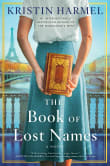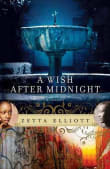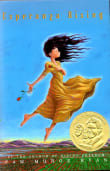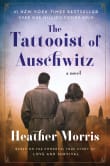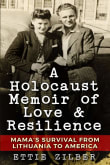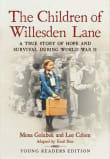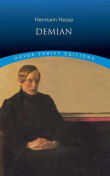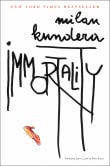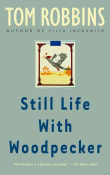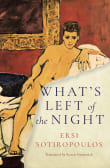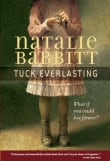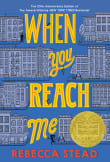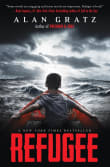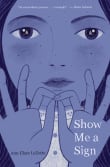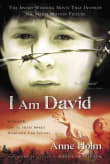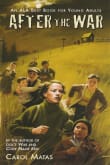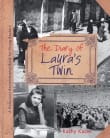The Book Thief
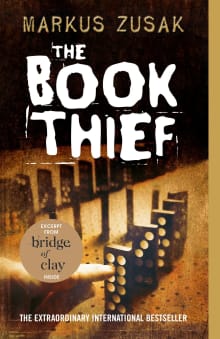
Book description
'Life affirming, triumphant and tragic . . . masterfully told. . . but also a wonderful page-turner' Guardian
'Brilliant and hugely ambitious' New York Times
'Extraordinary' Telegraph
___
HERE IS A SMALL FACT - YOU ARE GOING TO DIE
1939. Nazi Germany. The country is holding its breath. Death has…
Why read it?
34 authors picked The Book Thief as one of their favorite books. Why do they recommend it?

This historical fiction novel was beautifully written. Its 1st person omniscient narrator was able to explore the characters in depth as well as include realistic details about life during the rise of Nazi Germany.

Of the five recommendations I made, this one is the heaviest. Historical fiction set in Germany during WWII, and having our main character be a poor German girl offers such an interesting juxtaposition of the starkness of the global stage with homelife for Liesel.
Another reason I love this book: Death as the narrator. So awesome giving Death a voice and imagining how he might think/feel. I also love how multifaceted all the characters are–they are full of both light and darkness, but it’s their decisions that determine if light will shine in such dark times.
From Annie's list on flawed female main characters in war-torn worlds.

This book by Markus Zusak is frequently named one of the best WW2 books. I like it because it’s a tribute to the resilience of the human spirit and the importance of hope in dark times. It’s a haunting and beautifully written novel set in Nazi Germany.
Narrated by Death, the story follows Liesel, a young girl sent to live with a foster family. As she navigates a tumultuous world filled with fear and cruelty, Liesel finds comfort in books and words. I loved the premise of stealing forbidden books and sharing their stories with others. Through Liesel’s experiences, I…
From Mark's list on stories that help shape who we are.

This novel doesn’t reinvent history, but it does something I found just as engaging. It gave me a deeply emotional experience of a historical event; as the story unfolds, you feel the personal impact of Nazi Germany and World War II on the life of an ordinary young girl.
You also get a 2nd perspective on this tragic time, just as emotional, through the story’s narrator, Death. This unconventional lens used to witness this dark time in history made every detail of this novel emotional and moving.
From Irving's list on refresh legends, myths, and historical events.

My husband first recommended this book to me, and when he described it, he said it was written from the perspective of death, and I was not very interested in learning more about what exactly that meant. It took me years to finally follow his recommendation, and when I did, I was greatly surprised.
This historical fiction novel is very different than the others on this list, but it is inspiring all the same. Its unique narrative perspective challenges readers to think about life from a different point of view, and I thoroughly enjoyed the thought-provoking challenge.
From Jesse's list on fiction books that capture the meaning of simply being human.

Markus Zusak’s book is definitely not for the faint of heart or those easily bored: its narrator is Death, and the book is over 500 pages long. Not really the kind of book you’d think of for those aged 12 and up (as it’s listed). But it is one that really ought to be universally read.
The book follows two young children battling for survival in Nazi Germany. Entropy hangs in the air like Death’s shadow. Life’s harsh realities—like evil, heartache, pain, and mortality—are ever-present. In Max's (the young boy) dreams, he is boxing with Hitler and lands a…
From Michele's list on transforming your mental and spiritual health.

I love the way this story is narrated by Death.
I love unusual first-person narrators anyway. But the idea of Death telling the story of a young girl in World War 2 who grows to love words and adore books, that’s genius. I love it! And I love the way that this girl, Liesel, comes to a very Hebraic understanding of the power of words to give life.
This, in the end, causes a great reversal. Instead of Liesel being frightened of death, Death is frightened of her! I love the idea of books containing something that’s stronger than death.
From Mark's list on the magic of books, bookshops, and libraries.

This is a very touching, beautifully-written story about a young girl Liesel who is growing up in a town near Munich, Germany during World War II.
She is living with foster-parents, both of whom are anti-fascist but must, of course, be careful not to draw attention to themselves. Their lives become very difficult, however, when they decide to hide Max, a young Jewish man, in their basement. They all live in constant fear of him being discovered.
Liesel and Max develop a strong bond as he teaches her the value of the written word. The family cannot afford to buy…
From Christine's list on the dangers of living under Hitler and Mussolini.

Sometimes as a writer you read books that make you think, ‘I wish I’d thought of that’ and so it is with The Book Thief.
For me, the idea of casting death as a character is brilliant but to portray him as the narrator, and one with a sense of humour too is genius. Through his eyes we are able to see not just the horror but the humanity of the people living in Nazi Germany and particularly the main character, Liesel. She is a smart young girl reeling from personal tragedy and fascinated by words.
She steals books that…
From Annie's list on WW1 and 2 fiction featuring brilliant female characters.

“I am haunted by humans.” I’ve read a lot of fiction and non-fiction set during WWII and it was hard to imagine a better choice to narrate this particular story than Death.
He knows, after all, what humanity is capable of. “Their great skill is their capacity to escalate,” he says, as humanity escalated misery to its zenith. With War leaning over Death’s shoulder constantly requiring new efficiencies, it is the single life of Liesel Meininger, the orphaned German book thief of the title that serves as Death’s touchstone, his reminder of humanity’s potential wonder.
Forced to steal away…
From Maria's list on stories of death personified.
Want books like The Book Thief?
Our community of 12,000+ authors has personally recommended 100 books like The Book Thief.

